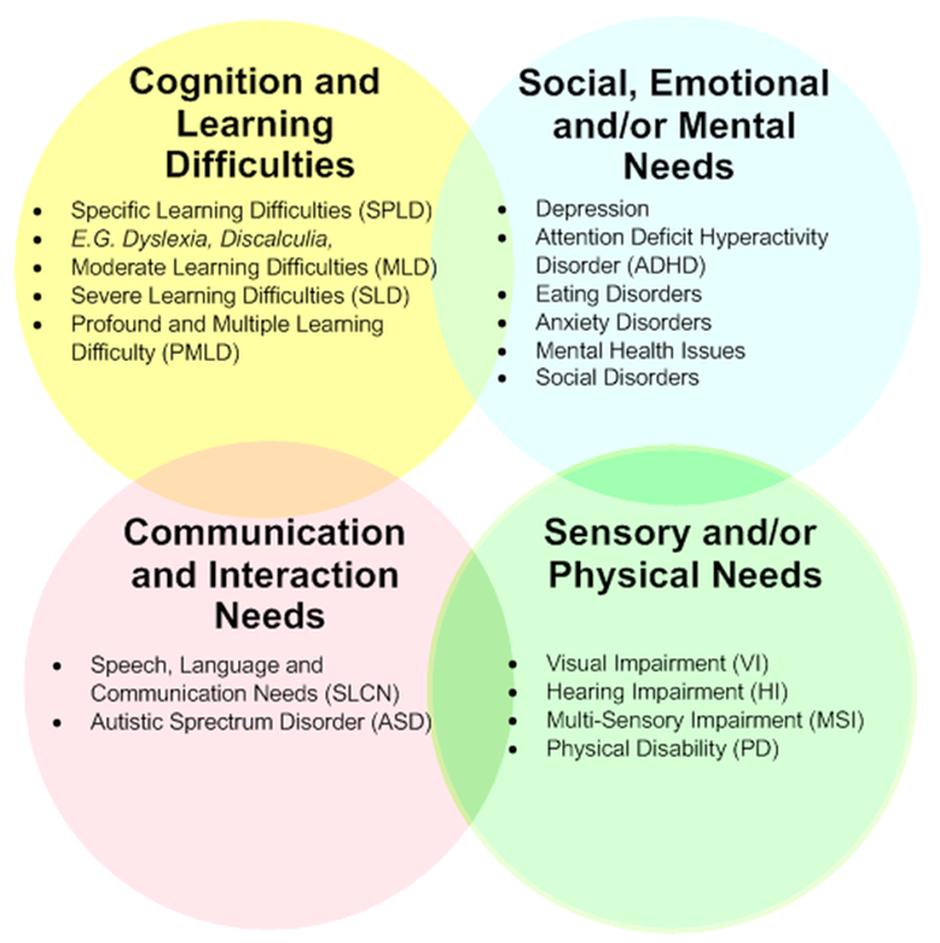Support and Inclusion
Student care is a place where safety and wellbeing is at the heart of everything we do. The staff work closely as a team to ensure students are provided with support, advice and guidance for any worries or concerns they may have.
SEND support in Guilsborough Academy has 4 stages - Assess, Plan, Do and Review:
Identifying a child as needing SEND support after carrying out clear analysis of the student's needs. This may be via staff referral or review of baseline data.
Parents must be notified when their child is to receive SEND support, although parents/carers should have already been involved in the assessment stage. The academy, in consultation with parents and the student, should agree the adjustments, interventions and support to be put in place, as well as the expected impact on progress, development or behaviour, along with a clear date for review.
The form or subject teacher remains responsible for the student on a day-to-day basis with the support of the SENDco if required. Interventions and progress will be monitored throughout.
Following interventions, progress will be reviewed by relevant stakeholders who will decide on next steps as per the graduated approach. This may include no further action, being placed on the SEN register or referral to external agencies.
Primary Areas of Need
All education staff, including early years settings and colleges, expect to support children and young people with a variety of needs, defined in 4 broad areas as laid out in the SEND code of practice

Speech, language and communication needs – this may include children with Autism Spectrum Disorders (ASD).
Including moderate learning difficulties, severe learning difficulties and profound and multiple learning difficulties. Specific learning difficulties encompass a range of conditions such as dyslexia, dyscalculia and dyspraxia.
May manifest in many ways including being withdrawn, or displaying challenging behaviour. Other children may have disorders such as ADHD or attachment disorders.
Children with a sensory impairment that affects their hearing or their sight, or both will require specialist support to access their learning. Some children with a physical disability require ongoing support and equipment to access all the opportunities available to their peers.

